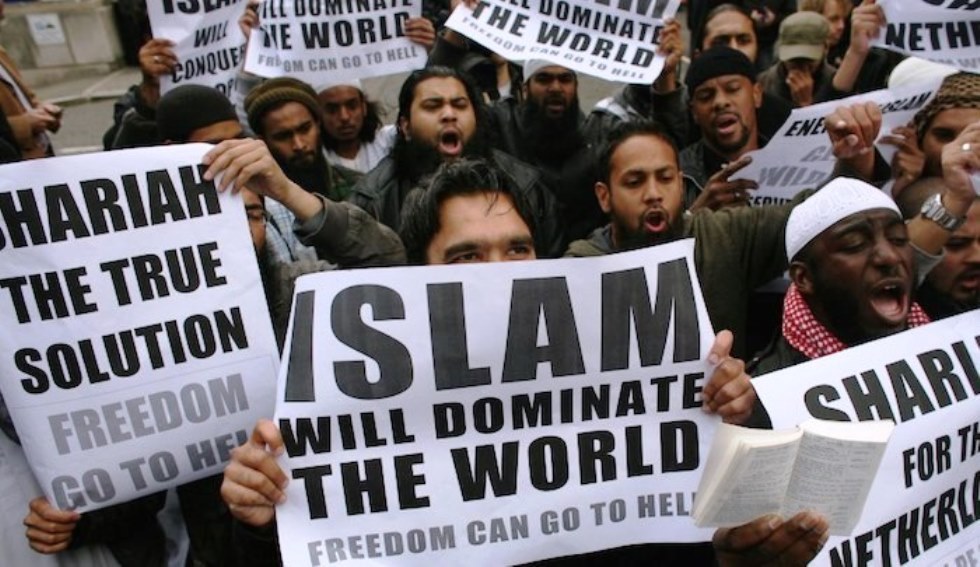‘We Are Not Weak’: Does Jihadist’s Claim Stand Up to Scrutiny?
Raymond Ibrahim/PJ Media/December 16/16
Abdul Razak Ali Artan — an 18-year-old Muslim refugee from Somalia, who was receiving aid from Catholic charities — recently rammed his car into a building at The Ohio State University. He then got out and stabbed people with a butcher knife, sending 13 people to the hospital before he was gunned down by police.
In a Facebook post that Artan wrote — and which the media cited to portray his violence as a product of “Muslim Grievances” — the young Somali made an interesting statement:
America stop interfering with other countries, especially the Muslim Ummah. We are not weak. We are not weak, remember that.
Is this true? Is the Muslim world “not weak,” but a force to be reckoned with? Something we all should “remember”?
Watching the behavior of Western politicians who kowtow before everything Islamic, one can see why Artan and many others — including in the West — believe that America had better watch its step lest the Ummah arise in wrath.
Sponsored
Ironically, that’s how the White House responded to Artan’s attack itself. It warned Americans not to be critical of Muslims — the apologist’s way of conflating criticism of Islam (an idea) with criticism of Muslims (people) — because “we are more likely going to contribute to acts of violence than we are to prevent them.”
Despite the White House’s weakness, the truth is that the Muslim world is incredibly weak.
If the West saw and treated the Muslim world the way the Muslim world has always seen, and when possible, always treated the West, there would likely be no Muslim world to speak about today.
This reflects the dichotomy between Islam and the West — a dichotomy reflective of the will and the way. The West has the way — including the military and economic might — to utterly neutralize Islam, one way or the other. Yet it doesn’t even have the will to preserve itself, as evidenced by all the recent terror attacks and rapes committed by Muslim refugees in the West.
Were European nations and America to ban or severely curtail Islam from their borders — which is doable, as Hungary has proven, not to mention justified — Islamic terrorism on Western soil would cease. It’s that simple.
Conversely, Islam most certainly has the will to eliminate the West, though it currently doesn’t have the way (minus those ways the West gives it). Historically, for over one millennium, whenever Islam had the way, it always went on the offensive.
From day one of Islam to today, mainstream, orthodox Muslim understanding divides the world into two perpetually warring halves: the “abode of peace,” where Islamic law reigns, must — when possible — wage jihad on the “abode of war,” where non-Muslims rule. And that’s precisely what Muslims did for over one millennium.
The result is that the overwhelming majority of lands that today make up the heart of the “Muslim world” — Egypt, all of North Africa, Syria, Iraq, Turkey, Iran, Pakistan, etc. — were once non-Muslim, and were taken by great violence and bloodshed over the course of centuries.
Sponsored.
Back then, when much of the world was limited to fighting with swords and spears, arrows and fire — back when Islam was on an even footing with its neighbors — untold millions of non-Muslims were slaughtered, enslaved, or converted to Islam.
Western military technology eventually progressed to the point that Islam was left in the dust. Its will to dominate went dormant, but remained intact.
Put differently, if Islam was the one to have developed sophisticated armaments and weapons of mass destruction, while the West was still using swords and spears, there would be no West to speak of today. Faced before Islam’s three choices — conversion, enslavement, or annihilation — the West would have gone the way of the dodo, like many civilizations before it.
Yet here is the free and mighty West, refusing to use its powers — even in the name of self-preservation — while empowering an Islam that openly vows to, and will, subjugate the West once the way to do so becomes available.
Listen to Winston Churchill, who knew the dangers of waiting while one’s ideological enemy grows in power:
[I]f you will not fight for the right when you can easily win without bloodshed; if you will not fight when your victory will be sure and not too costly; you may come to the moment when you will have to fight with all the odds against you and only a precarious chance of survival. There may even be a worse case. You may have to fight when there is no hope of victory, because it is better to perish than to live as slaves.

















